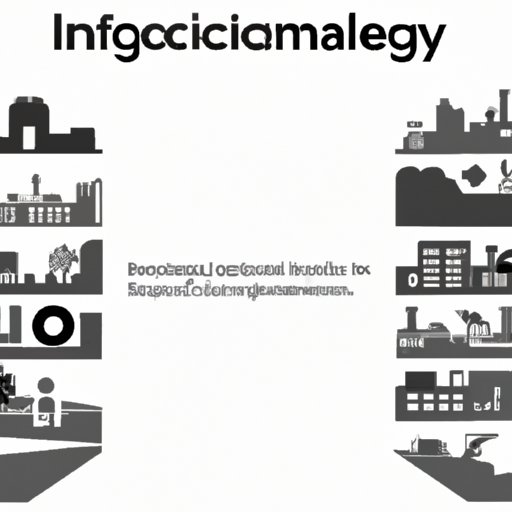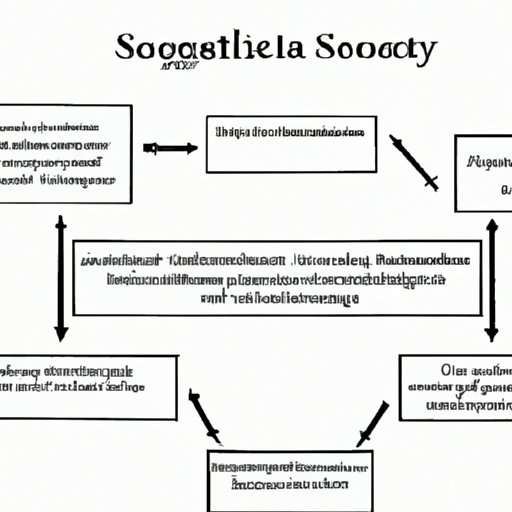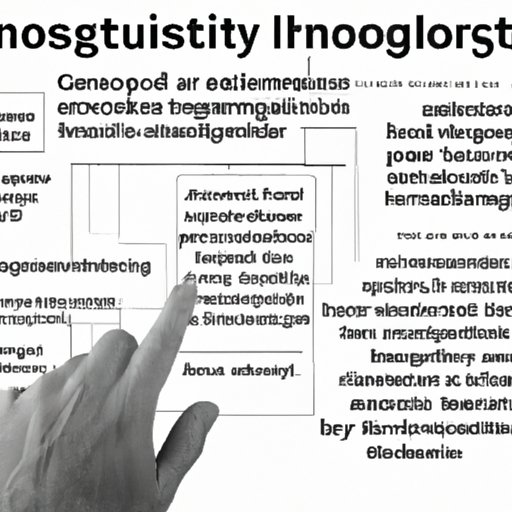Exploring the Concept of Sociological Imagination: A Guide
Sociological imagination is a term coined by American sociologist C. Wright Mills in 1959 to describe the ability to connect individual experiences to broader social forces. It is an approach to understanding the relationship between our personal lives and the larger social structures that shape them. By understanding these connections and their implications, we can gain insight into how our individual choices and actions are influenced by social forces.
Definition of Sociological Imagination
The concept of sociological imagination refers to the ability to view one’s personal experiences in the context of larger societal forces. According to Mills, this allows us to understand the “inner force of history” and to recognize that “we are all connected to each other through our shared histories and experiences.” In other words, it is the capacity to look beyond our immediate circumstances and to recognize how our individual lives are shaped by the larger social environment.
Examples of Sociological Imagination
One example of sociological imagination is the recognition that poverty is not simply a personal issue but is rather linked to larger structural issues such as economic inequality and unequal access to resources. Another example is the understanding that gender roles and expectations are not just a matter of personal preference but are instead deeply rooted in social norms and expectations. Finally, sociological imagination can be used to recognize the ways in which racial and ethnic discrimination are embedded in the fabric of society.
Benefits of Applying Sociological Imagination
By applying sociological imagination, we can gain a better understanding of our personal lives and of the larger social forces that shape them. This knowledge can then be used to help us make more informed decisions and to take more effective action to address social issues. Additionally, the use of sociological imagination can help us to develop a greater empathy for others, as it encourages us to consider the perspectives of those who may have different experiences than our own.

Understanding the Impact of Sociological Imagination on Society
Sociological imagination has the potential to profoundly impact society. By helping individuals to understand how their own lives are shaped by larger social forces, sociological imagination can lead to increased awareness of issues such as poverty, gender inequality, and racism. This understanding can then be used to inform policy decisions and to spur collective action to address these issues. Additionally, sociological imagination can help to break down the divisions between individuals and can foster a sense of solidarity and collective responsibility for addressing social problems.

How Sociological Imagination Affects Social Structures
Sociological imagination can also influence the way in which social structures are organized. By recognizing the ways in which our individual lives are impacted by larger social forces, we can begin to see how certain social structures can perpetuate inequality. This can lead to a reexamination of existing social structures and the development of new ones that are more equitable and just. Additionally, the use of sociological imagination can help to identify areas in which individuals and communities can work together to create positive change.
The Impact of Sociological Imagination on Political Systems
The use of sociological imagination can also have an impact on political systems. By recognizing the ways in which our individual experiences are shaped by larger social forces, we can gain a better understanding of how different political systems operate and how they can be improved or changed. Additionally, sociological imagination can provide a valuable perspective on current events, allowing us to better understand the motivations behind different political decisions and policies.

Examining the Relationship between Sociology and Sociological Imagination
Sociology is closely linked to the concept of sociological imagination. The discipline of sociology provides a framework for understanding the ways in which our individual lives are shaped by larger social forces. Through the study of sociology, we can gain insight into how our individual experiences are influenced by social structures, cultural norms, and economic systems. This knowledge can then be used to inform our use of sociological imagination.
How to Utilize Sociological Imagination in Your Own Life
In order to effectively utilize sociological imagination in your own life, it is important to first develop a sociological perspective. This involves learning about the various social structures that shape our lives and the ways in which they interact with one another. Additionally, it is important to practice critical thinking skills in order to evaluate the validity of different claims and to consider multiple perspectives. Finally, it is beneficial to seek out opportunities for reflection in order to gain a deeper understanding of the social forces at play in our lives.

Examining the Benefits and Challenges of Sociological Imagination
Sociological imagination can offer many benefits, including an increased understanding of our personal lives and of the larger social forces that shape them. Additionally, utilizing sociological imagination can help to foster empathy for others and to encourage collective action towards addressing social issues. However, there are also some challenges associated with the use of sociological imagination, such as the difficulty of seeing beyond our immediate circumstances and of recognizing our own biases. Additionally, it can be difficult to maintain a sense of detachment when considering social issues.

Analyzing Famous Examples of Sociological Imagination
There are several notable examples of sociological imagination. C. Wright Mills, the originator of the concept, wrote extensively about the need for individuals to understand the social forces that shape their lives. Karl Marx developed the theory of class struggle, which describes the ways in which economic inequalities can lead to social conflict. Max Weber’s theory of rationalization examines how changes in technology and culture can lead to increased efficiency but can also lead to alienation and disenchantment.
Investigating the Role of Sociology in Developing Sociological Imagination
Sociology plays an important role in developing sociological imagination. By studying the various social structures that shape our lives, we can gain a better understanding of how our individual experiences are influenced by larger social forces. Additionally, sociology can help to identify patterns of behavior and to uncover the underlying causes of social problems. By utilizing the insights gained from studying sociology, we can better apply sociological imagination in our own lives.
Examining the Link between Social Structure and Sociological Imagination
Finally, it is important to examine the link between social structure and sociological imagination. Social structure can influence the way in which we view our individual experiences, as well as the way in which we interpret the larger social forces that shape them. Additionally, sociological imagination can influence the way in which we interact with social structures, as it encourages us to challenge existing power dynamics and to strive for a more equitable and just society.
(Note: Is this article not meeting your expectations? Do you have knowledge or insights to share? Unlock new opportunities and expand your reach by joining our authors team. Click Registration to join us and share your expertise with our readers.)
